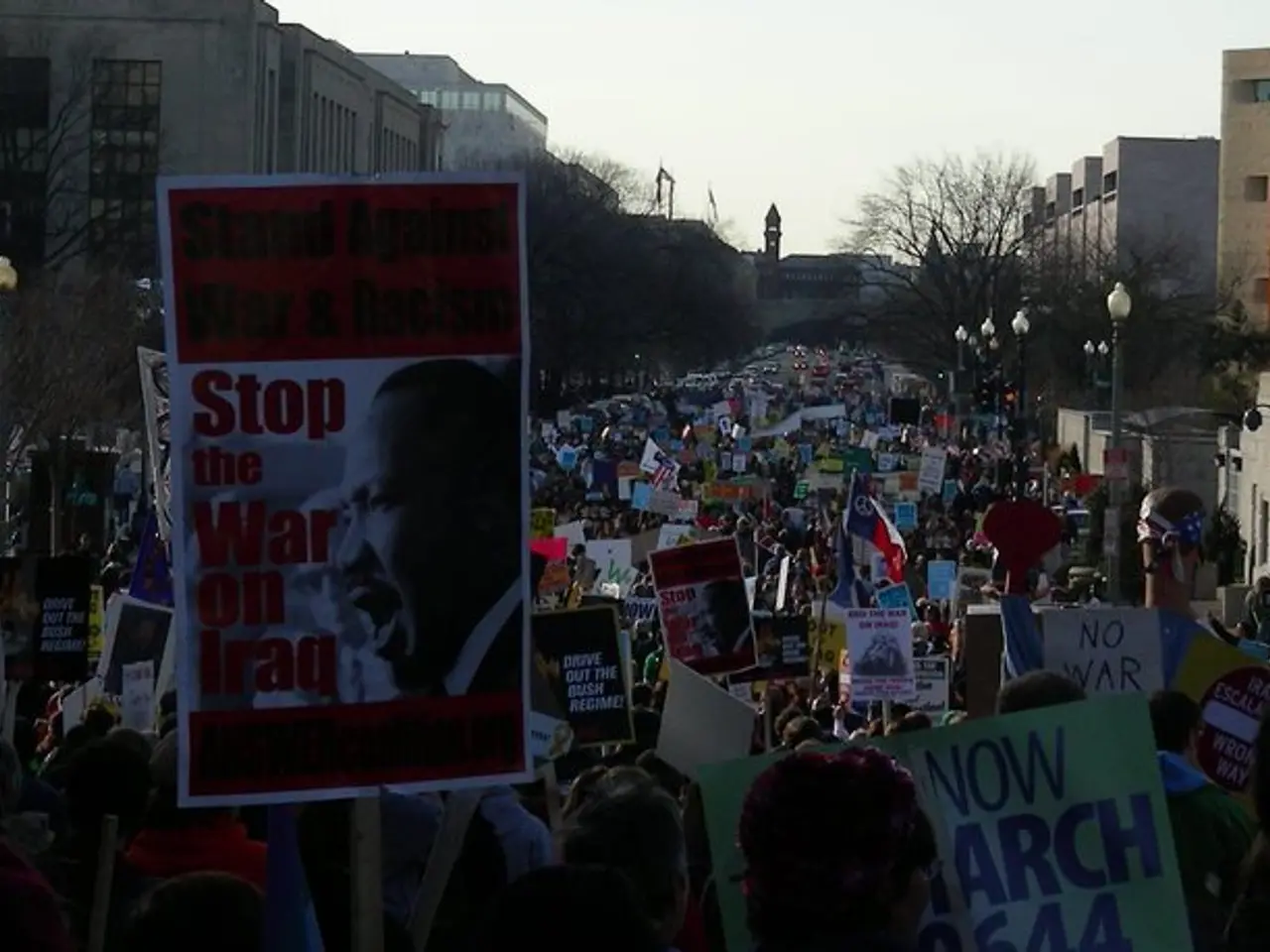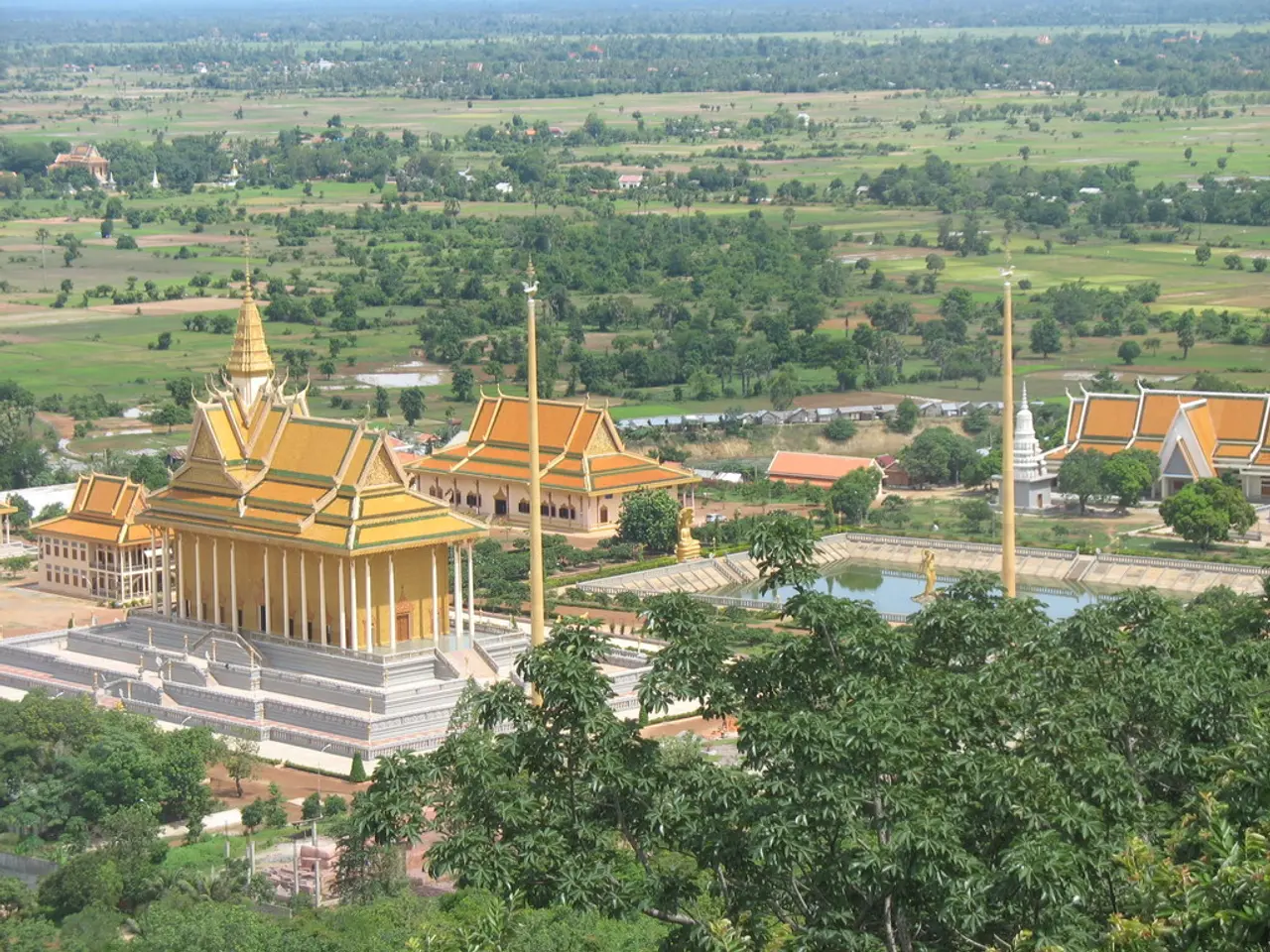Indus Waters Treaty Dispute: The Latest Standoff
Arbitration tribunal asserts authority in the Indus waters dispute between Pakistan and India
The heat between India and Pakistan is reaching boiling point over the Indus Waters Treaty (IWT). Here's what's brewing:
A Brief History
- IWT: This treaty, signed in 1960, is all about managing the water-sharing disputes between these South Asian neighbors. It's been a vital component of their bilateral relations.
- Start of the Dispute: Pakistan's been grumbling about India's hydroelectric projects—like the Kishenganga and Ratle projects in Jammu and Kashmir—claiming they could interfere with water flow into its territory.
Recent Facts
- India's Hold-Up on the Treaty: In April 2025, India chucked the IWT in the deep-freeze, saying it'd stay frozen until Pakistan renounces support for cross-border terrorism. The official affront came in a letter to Pakistan on April 24, 2025.[2]
- Court of Arbitration's Verdict: On June 27, 2025, the Permanent Court of Arbitration dropped a ruling, confirming its jurisdiction over the IWT disputes. It asserted that India's freezing of the treaty doesn't undermine the court's role, and the verdict is legally binding on both parties.[1][2][4]
Reactions to the News
- Pakistan's Response: Pakistan jumped up and down in approval, stressing its commitment to resolving issues through the set arbitration process. It maintains its determination to engage in open dialogue with India regarding the treaty.[1][4]
- India's Response: India stuck its nose up at the court's decision, labeling it unlawful and against the spirit of the IWT. India doesn't recognize the legitimacy of the arbitration court, arguing that the treaty is, for all intents and purposes, suspended.[1][3]
The Future Landscape
The dispute's as thorny as ever, with geopolitical forces adding fuel to the fire. India's concerns over terrorism and Pakistan's insistence on sticking to the treaty's letters are not making it easy to find a resolution. The court's decision serves to bolster the arbitration process, but India's refusal to acknowledge it hints at ongoing challenges in reaching a resolution.
- The ongoing Indus Waters Treaty dispute between India and Pakistan is not only a matter of regional concern, but also a significant point in world news, reflecting the complexities of east Asian politics and war-and-conflicts.
- The recent verdict by the Permanent Court of Arbitration, confirming its jurisdiction over the Indus Waters Treaty disputes, marks a significant event in the realm of international culture and general-news, as it implies the ongoing relevance of diplomacy and cooperation in resolving conflicts.
- The arrest of a key negotiator involved in the Indus Waters Treaty talks was recently reported under crime-and-justice news, highlighting the tense nature of the negotiations and the potential for further escalation.
- The Indus Waters Treaty dispute serves as a microcosm for the broader issues of water scarcity and political contestation in a rapidly changing world, making it a subject of interest for scholars and policymakers who study art, culture, and society.








